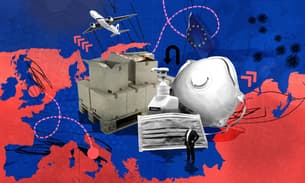Civil servants barred from networking dinners
The Cabinet office has banned civil servants from attending Chemistry Club dinners – for which companies pay up to £11,000 a year to mix with senior public officials – following a Bureau investigation, originally published in the Sunday Times.
The story is reproduced here.
COMPANIES are paying up to £11,000 a year to a Mayfair-based private members’ club that offers introductions to top civil servants.
At least 25 Whitehall mandarins have received hospitality from the Chemistry Club, which hosts “invitation only” networking events for members at West End restaurants and even at the House of Commons.
Critics believe the events provide businesses with an opportunity to lobby for government work and say they need to be opened up to more scrutiny. “There clearly needs to be greater transparency around such meetings,” said Angus Robertson, the SNP MP for Moray.
Members of the Chemistry Club and a sister networking group called the Climate Change Forum include Accenture, Siemens and Fujitsu. All three firms, as well as many of the 50 or so other companies named on the clubs’ websites, have won public sector contracts collectively worth hundreds of millions of pounds.
Related Links
A recent job advert by the Chemistry Club said: “The evenings are unique; prior to each private dinner every member and guest is prepared by way of a phone meeting.
“We gain an in-depth understanding [of] the executives’ needs, resulting in relevant introductions facilitated on the night.”
Such events have been attended by high-ranking officials from the Home Office, the transport department and six other Whitehall departments over the past three years, according to official declarations and documents obtained by the Bureau of Investigative Journalism, a non-profit organisation.
Joe Montgomery, a director-general in the local government and communities department, attended two Chemistry Club events last year. One of these was also attended by James Hall, who will retire next month as chief executive of the Identity and Passport Service.
About 120 people usually attend each gatherings, with an equal split from the public and private sectors. Civil servants do not pay to attend. Corporate members pay a £1,500 joining fee and an annual charge of £9,500 for access to a series of networking events.
The Cabinet Office denied there had been a breach of the civil service code, which states “civil servants must not receive gifts, hospitality or benefits of any kind … which might be seen to compromise their personal judgment or integrity”. Yesterday it said, however, it was not aware of how much contractors’ paid to belong to the club and that it would now ask civil servants not to attend any of the Chemistry Club’s future events.
In a statement, the Chemistry Club said it enabled civil servants and company executives to meet in “an informal setting to discuss a range of business issues, to exchange ideas and get to know key industry figures … There are many events and organisations that allow the public and private sectors to meet”.




